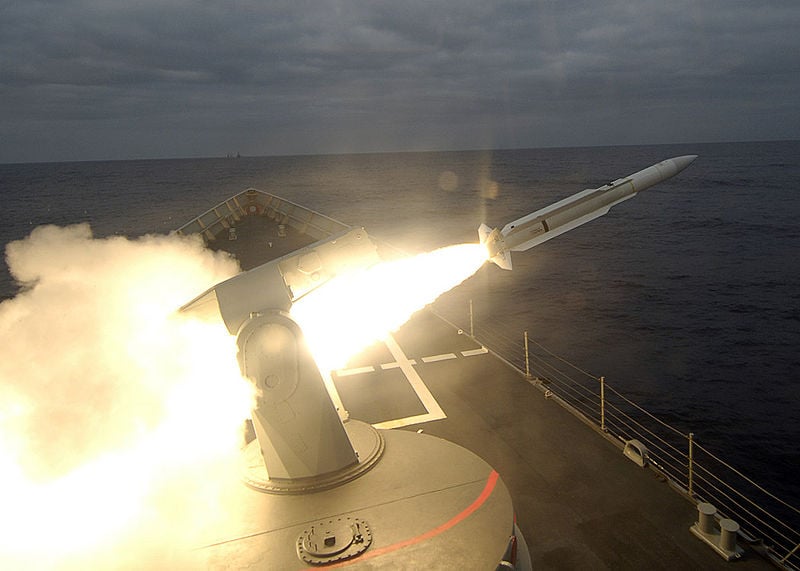
The end of 2023 became a demonstration of how bad policy had lead to the most evident atrocities ever documented in recorded history. What prevents many of these modern conflicts from spiralling out of control was a relatively new form of AI, in advanced missile systems that are capable of intercepting air and ballistic missile threats in many forms. In order to counter this AI, regressive technical systems such as drones were massed in order to overwhelm such systems and protract conflicts further, as without a serious threat, conflicts would not escalate past a certain point. Even with these numerous threats, many missile systems have functioned successfully, with an established strategy being used as a method to incur greater economic and supply costs on the defenders while prolonging the conflict even further. Missile defence worked in reducing conflict, as it reduced the losses to the defending party and lowered the demand for a forceful response to the initial attacks. Without such effective missile defence, a country would have few options but to react with force to the initial act under their rights to respond to Casus Belli.
The importance of missile defence does not only play a key role in policy decisions for military and political leaders, but often can be the main component of a security situation that limits or prevents greater conflicts from escalating past a point of no return. Such great importance should be placed on missile defence that actions taken by opposing forces, third parties, or even allies that aids or assists the diminishment of such a defence should be considered as an act that actively contributes to a conflict, where the results of such actions are known or should have been known to the contributing party. Acting as an accessory to Casus Belli ties the parties to the act of war itself, and should be met with legal responses, sanctions, or a defensive response. Such actions should be prevented using clear measures.
The funding of rogue nations and coercive third parties are one of the main sources of funds that enable and motivate many acts of violence in the past and is a significant threat in 2024. Often such actions have been established over a number of years, and work within a cooperative framework in normally democratic countries to fund and promote regimes in countries that are anything but democratic. These subversive acts benefit few people in the democratic infrastructure, and operate in such a manner to not only give access to funds abroad for nefarious groups, but corrupt systems and institutions in the democratic West linked to such entities. Fines and investigations on such actions often expose certain large financial institutions and their contributions to acts of violence, and have even exposed international organisations for being linked to the acts directly. A legal precedent already exists in aiding in the propagation of war, but the law of often ignored and not applied in countries where the Government is passively supporting/actively ignoring the financial ties of a few individuals to the conflict.
The allowance of knowledge and equipment to be exported to rogue states and organisations that are linked to crimes against humanity are also a key contributor to conflicts that escalate into larger wars. Much of the terror weapons used against civilians in places like Ukraine were built on commercial technologies exported to rogue countries, with little being done about the exchange well after it was known to have been used to target civilians. While the West has spent Billions to support their allies, the other end of those same economies have been exporting and profiting from weapons parts production and have funded the further production of adversarial weaponry through the third party purchase of energy products from their key adversary. Even with the knowledge that many of their adversaries are also oppressing their own people for demonstrating their own popular support for our values, Western nations have worked in conjunction with abusive regimes who oppress local movements while enabling acts of war abroad. If knowledge of such material support for acts of war is discovered, it should stop immediately. If it was known and was supported through weapons sales, parts sales and direct purchasing of sanctioned energy products, it should be met with fierce legal consequences domestically, internationally and via the countries that have suffered from the act of war themselves. Countries who have been attacked will never be able to acquiesce to threats as they have no other option but to protect their own citizenry from act of war. It is their obligation to seek justice for their own citizens under International Law. Avoiding their obligations could make them culpable to the crime itself.
Along with the passive support of conflict through the sale of weapon parts above, the active sale of weapons that enable civilians to be harmed must be met with the coercive obligations countries have to protect their citizens and those of peaceful countries from direct and immediate threats to peace. If a country seeks to prohibit or limit conflict, missile defence in the theatre of war must be married to not only an active financial and material restriction on supporting the initiant to a conflict, but must seek to disrupt the production of such weapons if that capability is available. Known threats to shipping and population centres that initiate Casus Belli, also includes the production facilities of such weapons, even if not in the immediate theatre. Handling such threats before such weapons engage military and civilian targets alike will prevent wider conflicts and demonstrate consequences for third parties in their contribution to violence in the region. It is often the case that if you destroy the roots of the foundation of a conflict, the wider conflict becomes more manageable. Until such actions are taken, the situation will almost certainly become worse for all parties involved, especially the innocent.